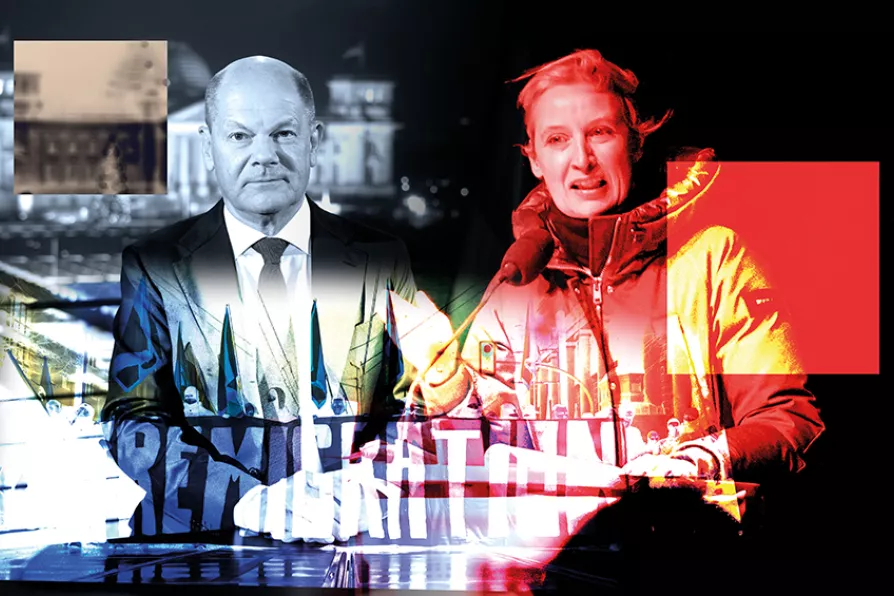Does widespread and uncontrolled use of AI change our relationship with scientific meaning? Or with each other? ask ROX MIDDLETON, LIAM SHAW and MIRIAM GAUNTLETT

 German Chancellor Olaf Scholz (left) and AfD co-leader Alice Weidel
German Chancellor Olaf Scholz (left) and AfD co-leader Alice Weidel
CHANCELLOR Olaf Scholz’s three-party class cuddle coalition has collapsed. The unholy assembly of Scholz’s Social Democrat Party (SPD), the petit bourgeois Greens and the neoliberal Free Democrats has disintegrated under the burden of Germany’s growing economic crisis and the problems facing the German model of managed capitalism.
One expression of the break with the recent past is the rise, within the opposition Christian Democrat Party (CDU), of its latest leader Friedrich Merz, whose long contest with former party leader and chancellor Angela Merkel ended with her retirement. Since then the political landscape in Germany has changed and while the full disposition of political forces will not be visible until the election is over, the outline is taking shape.
The latest opinion polls have the SPD on 16.5 per cent, the conservative CDU/CSU alliance on 24.2 per cent, the Greens on 12 per cent, the neoliberal FDP on 3.5 per cent ,the far-right Alternative fur Deutschland (AfD) on 20.5 per cent, Die Linke on 4 per cent and Bundnis Sahra Wagenknecht (BSW) on 7 per cent.

NICK WRIGHT returns to Berlin and finds a city in darkness and political turmoil

In part two of May’s Berlin Bulletin, VICTOR GROSSMAN, having assessed the policies of the new government, looks at how the opposition is faring











